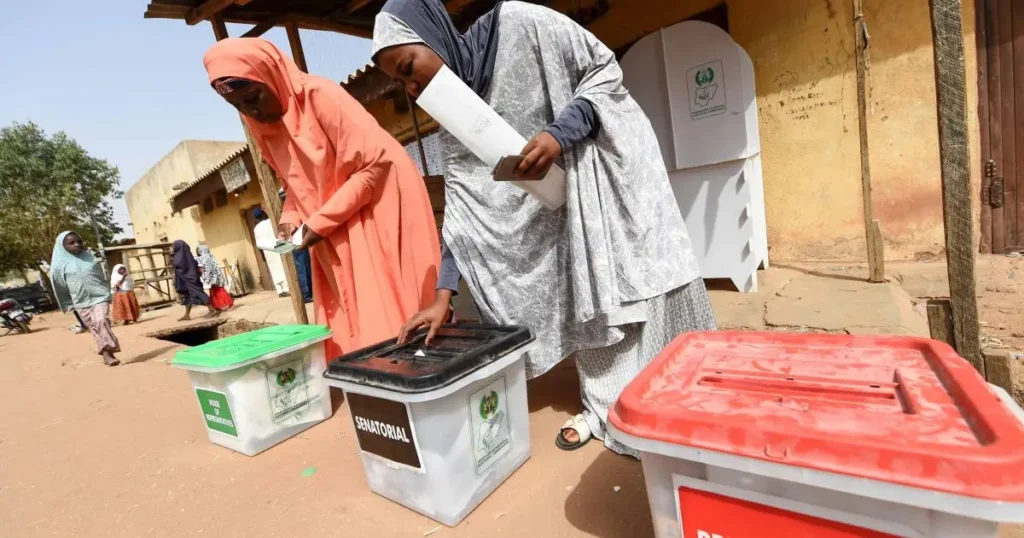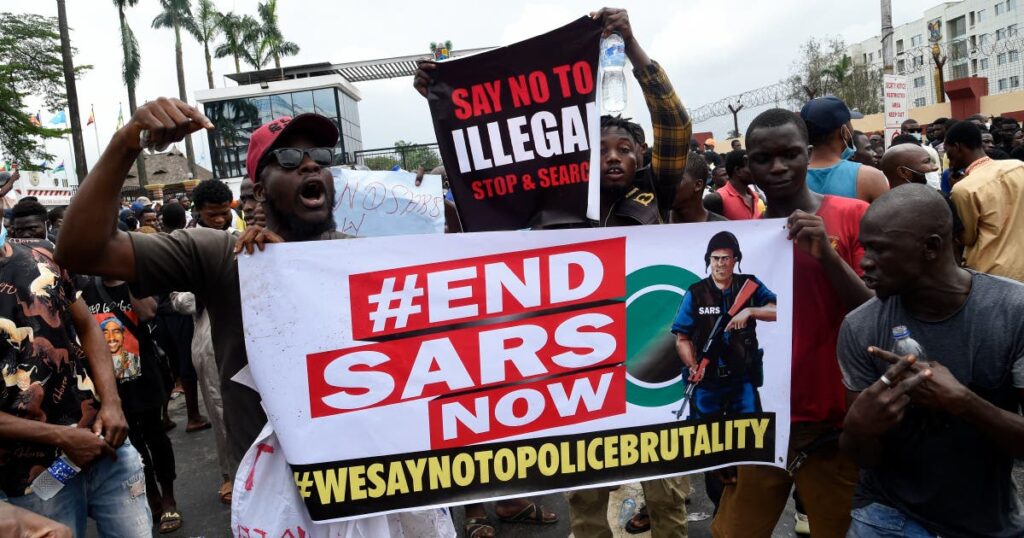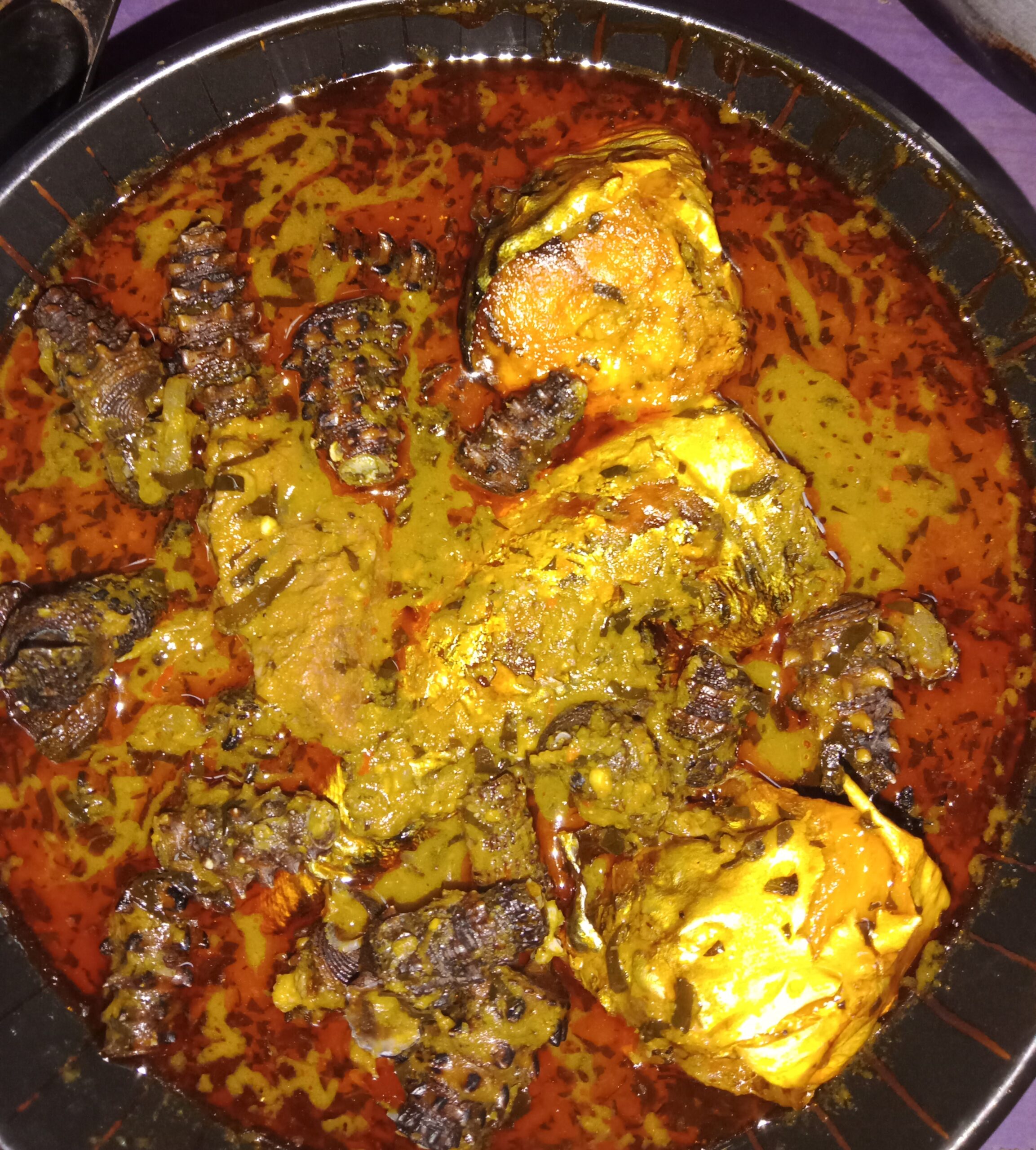Exploring Nigeria’s transformative journey: A detailed history of civil elections and the 2020 End SARS protest
A Detailed History of Nigeria’s Civil Elections
Nigeria’s path to democracy has been complex and multifaceted, marked by numerous civil elections that each represent pivotal moments in the nation’s political evolution. From the pre-independence era to the present day, Nigeria’s electoral history reflects its ongoing struggles and achievements in establishing a stable democratic system. This comprehensive analysis explores each civil election, examining the context, key figures, outcomes, and their impact on Nigeria’s political landscape.

Background on Nigerian Elections
Elections in Nigeria involve choosing representatives to the federal government and the various states in the Fourth Republic. They began in 1959 with numerous political parties and are a method for citizens to vote and be voted for. In 2023, approximately 93.4 million eligible voters prepared for the presidential elections scheduled for February 25.
Federal Level Elections:
Nigerians elect a head of state (the president) and a legislature (the National Assembly) at the federal level. The president is elected by the people. The National Assembly has two chambers: the House of Representatives with 360 members elected for a four-year term in single-seat constituencies, and the Senate with 109 members, each of the 36 states divided into 3 senatorial districts represented by one senator, and the Federal Capital Territory represented by one senator.
Nigeria has a multi-party system with two or three strong parties and a third party that is electorally successful. However, members of the PDP controlled the presidency from 1999 until 2015, when Muhammadu Buhari won the presidential election.
Pre-Independence Elections
1923 Legislative Council Elections:
The first election in Nigeria occurred in 1923 following the Clifford Constitution, which introduced a legislative council with limited African representation. Elections were held in Lagos and Calabar, allowing a small number of Nigerians to vote for representatives.
1951 Regional Elections:
The Macpherson Constitution of 1951 introduced regional legislatures and expanded the electorate. This period saw the emergence of major political parties, including the National Council of Nigeria and the Cameroons (NCNC), the Action Group (AG), and the Northern People’s Congress (NPC).
1954 Federal Elections:
The Lyttleton Constitution of 1954 established a federal structure and introduced the first federal elections in Nigeria. The NPC, led by Ahmadu Bello, dominated the Northern Region, while the NCNC, led by Nnamdi Azikiwe, was strong in the Eastern Region. The AG, under Obafemi Awolowo, held sway in the Western Region.
1959 General Elections:
The 1959 general elections, the last before independence, were crucial in determining the leadership of the soon-to-be-independent Nigeria. The NPC won the majority of seats, forming a coalition government with the NCNC, setting the stage for Nigeria’s independence on October 1, 1960.
Post-Independence Elections
1964/1965 Federal and Regional Elections:
The first post-independence elections were marred by widespread violence, allegations of electoral fraud, and intense political rivalry. The contentious 1964 federal elections and the 1965 regional elections in the Western Region contributed to the political instability leading to the military coup of January 1966.
The Second Republic (1979-1983)
1979 General Elections:
After thirteen years of military rule, Nigeria returned to civilian governance with the 1979 general elections under the 1979 Constitution, establishing a presidential system of government. Alhaji Shehu Shagari of the National Party of Nigeria (NPN) won the presidential election, marking the beginning of the Second Republic.
1983 General Elections:
The 1983 general elections were characterized by widespread electoral malpractice and violence. President Shehu Shagari’s NPN was accused of rigging the elections to secure a landslide victory, exacerbating political tensions and leading to the military coup of December 31, 1983.
The Third Republic (1992-1993)
1992/1993 State and Federal Legislative Elections:
Part of General Ibrahim Babangida’s transition program, these elections aimed to return Nigeria to civilian rule. The two main political parties were the Social Democratic Party (SDP) and the National Republican Convention (NRC).
1993 Presidential Election:
The 1993 presidential election is considered one of Nigeria’s fairest. Chief Moshood Kashimawo Olawale (MKO) Abiola of the SDP was widely believed to have won. However, General Babangida annulled the election, leading to widespread protests and the installation of an interim national government headed by Chief Ernest Shonekan.
The Fourth Republic (1999-Present)
1999 General Elections:
After years of military rule, Nigeria transitioned to civilian rule with the 1999 general elections under General Abdulsalami Abubakar. Chief Olusegun Obasanjo of the People’s Democratic Party (PDP) won the presidential election, marking the beginning of the Fourth Republic.
2003 General Elections:
President Olusegun Obasanjo sought re-election in the 2003 general elections, facing strong challenges from the All Nigeria Peoples Party (ANPP) and the newly formed Action Congress of Nigeria (ACN). Obasanjo won re-election amidst allegations of electoral malpractice and violence.
2007 General Elections:
The Nigerian general elections of 2007 were held on 14 April and 21 April 2007. Governorship and state assembly elections were held on 14 April, while the presidential and national assembly elections were held a week later on 21 April. The late Umaru Yar’Adua won the highly controversial election for the ruling People’s Democratic Party (PDP) and was sworn in on 29 May.
The ruling PDP won 26 of the 32 states, according to the Independent National Electoral Commission (INEC), including Kaduna State and Katsina State, where the results were contested by the local population.
Following the presidential election, groups monitoring the election gave it a dismal assessment. Chief European Union observer Max van den Berg reported that the handling of the polls had “fallen far short” of basic international standards, and that “the process cannot be considered to be credible.” A spokesman for the United States Department of State said it was “deeply troubled” by election polls, calling them “flawed”, and said it hoped the political parties would resolve any differences over the election through peaceful, constitutional means.
2011 General Elections:
A parliamentary election was held in Nigeria on 9 April 2011. The election was originally scheduled to be held on 2 April but was later postponed to 4 April.
A presidential election was held in Nigeria on 16 April 2011, postponed from 9 April 2011. The election follows controversy as to whether a Muslim or Christian should be allowed to become president given the tradition of rotating the top office between the religions and following the death of Umaru Yar’Adua, who was a Muslim, and Goodluck Jonathan, a Christian, assuming the interim presidency.
Following the election widespread violence took place in the northern parts of the country. Goodluck Jonathan was declared the winner on 19 April. The elections were reported in the international media as having run smoothly with relatively little violence or voter fraud in contrast to previous elections, in particular the widely disputed 2007 election. The United States State Department said the election was “successful” and a “substantial improvement” over 2007, although it added that vote rigging and fraud also took place.
2015 General Elections:
The 2015 general elections were originally scheduled to be held on 14 February but were later postponed to 28 March (presidential, senatorial, and House of Representatives) and 11 April 2015 (governorship and state house of assembly). General Muhammadu Buhari of the All Progressives Congress emerged as the winner of the presidential elections and was sworn in on 29 May 2015. The 2015 election was a success because there were tensions everywhere concerning the difficult political and security environment of the country at that time. However, it was the first time in the history of Nigeria that an incumbent president lost an election. Goodluck Ebele Johnathan of the People’s Democratic Party lost his seat to Muhammadu Buhari of the All Progressives Congress.
2019 General Elections:
Presidential and National Assembly elections were scheduled for 16 February 2019, while state and local government elections were scheduled for 2 March 2019. Elections were postponed by one week after INEC cited logistic challenges. The rescheduled dates were 23 February and 9 March 2019.
President Muhammadu Buhari was re-elected for another four-year term. The primary contender was former Vice President Atiku Abubakar of the People’s Democratic Party (PDP). Kingsley Moghalu of the Young Progressives Party (YPP), Yele Sowore of the African Action Congress (AAC), and Fela Durotoye of the Alliance for a New Nigeria (ANN) were other popular candidates who were all relatively young. Late in 2018, these three parties alongside some others attempted to form a coalition. However, the candidates pulled out of the coalition and decided to continue running on their respective platforms. There were 73 candidates contesting in the presidential election.
The 2019 governorship and state house of assembly election was earlier scheduled for 2 March 2019 was rescheduled for Saturday, 9 March 2019. With two major political parties; All Progressives Congress (APC) and People’s Democratic Party fielding candidates in the elections across various states except Rivers where a court order prohibits The All Progressives Congress from fielding candidates as a result of an internal crisis with the state chapter of the party.
The 2019 Nigerian general election suffered from unique issues and challenges and also enjoyed successes that had not been witnessed in the previous five elections in Nigeria’s Fourth Republic.
2023 General Elections:
General elections were held in Nigeria on 25 February 2023 to elect the president and vice president and members of the Senate and House of Representatives. The elections were a significant test of Nigeria’s democratic resilience, with a record number of registered voters and high stakes for the major political parties. Bola Tinubu of the APC emerged victorious in the presidential election, defeating Atiku Abubakar of the PDP and other contenders. The election results were contested, highlighting ongoing challenges in ensuring free, fair, and transparent electoral processes.
Conclusion
Nigeria’s electoral history is a testament to its efforts to build and sustain a democratic system. Each election cycle brings new challenges and opportunities, reflecting the dynamic and evolving nature of Nigerian politics. From the pre-independence era to the present day, Nigeria’s civil elections have played a crucial role in shaping the nation’s political landscape and its quest for democratic consolidation.
The 2020 End SARS Protest: A Watershed Moment in Nigeria’s History
The End SARS protest of 2020 was a significant and unprecedented event in Nigeria’s contemporary history. It marked a powerful movement against police brutality, corruption, and systemic failures within the Nigerian police force, specifically targeting the Special Anti-Robbery Squad (SARS). This protest, driven by a predominantly youthful population, reflected deep-seated grievances and aspirations for a better Nigeria. As a historian, it is essential to explore the origins, developments, impact, and legacy of this monumental movement.

Origins of SARS
The Special Anti-Robbery Squad (SARS) was established in 1992 to combat armed robbery and other violent crimes. Initially, SARS was seen as a necessary and effective unit within the Nigerian Police Force (NPF). However, over the years, it became synonymous with human rights abuses, including extrajudicial killings, torture, arbitrary arrests, and extortion. Reports of SARS operatives engaging in brutal and unlawful activities became rampant, leading to widespread public outcry.
Build-up to the Protest
The call to disband SARS was not new. For years, human rights organizations, activists, and citizens had raised concerns about the unit’s misconduct. Despite numerous promises by successive governments to reform or disband SARS, little changed. Frustration and anger reached a tipping point in October 2020, when a video surfaced online showing SARS officers allegedly killing a young man in Delta State. This incident ignited a nationwide movement.
The Protests Begin
On October 8, 2020, Nigerian youth took to the streets to demand an end to SARS. The protests quickly gained momentum, spreading across major cities including Lagos, Abuja, and Port Harcourt. Social media played a pivotal role in mobilizing support and coordinating actions. The hashtag #EndSARS trended globally, drawing attention to the plight of Nigerian citizens and garnering international solidarity.
Key Demands
The protesters’ demands extended beyond the disbandment of SARS. They sought comprehensive police reform, justice for victims of police brutality, and accountability for erring officers. The “5 for 5” demands became a rallying cry, encompassing:
- Immediate release of all arrested protesters.
- Justice and compensation for families of victims of police brutality.
- Independent body to oversee the investigation and prosecution of all reports of police misconduct.
- Psychological evaluation and retraining of all disbanded SARS officers before they are redeployed.
- Increase in police salary to ensure they are adequately compensated for protecting lives and property.
Government Response
On October 11, 2020, in response to the widespread protests, the Inspector-General of Police announced the dissolution of SARS. However, this announcement was met with skepticism by the protesters, who had seen similar promises in the past without any substantial change. The protests continued, with demonstrators insisting on the fulfillment of all their demands and calling for broader systemic reforms.
The Lekki Toll Gate Incident
The protest reached a tragic and pivotal moment on October 20, 2020, when security forces opened fire on peaceful protesters at the Lekki Toll Gate in Lagos. The exact number of casualties remains disputed, but eyewitnesses and various reports confirmed multiple deaths and injuries. The Lekki Toll Gate shooting galvanized further outrage both domestically and internationally, becoming a symbol of the struggle against oppression and state violence.
Aftermath and Impact
The End SARS protest had a profound impact on Nigerian society and politics. It exposed deep-rooted issues within the police force and governance structures. The government set up judicial panels of inquiry in various states to investigate cases of police brutality, and some officers were brought to justice. The protest also sparked a broader conversation about governance, accountability, and the role of youth in shaping Nigeria’s future.
Legacy of the End SARS Protest
The End SARS movement will be remembered as a pivotal moment in Nigeria’s history. It demonstrated the power of collective action and the potential of social media in mobilizing grassroots movements. The protests highlighted the resilience and determination of Nigerian youth to demand justice and accountability. While significant challenges remain, the End SARS protest laid the groundwork for continued advocacy and reform efforts in Nigeria.
In conclusion, the 2020 End SARS protest was a watershed moment that underscored the urgent need for police reform and broader systemic changes in Nigeria. It brought to the forefront the voices of the youth and their demands for a just and equitable society. As a historian, it is crucial to document and analyze such movements to understand their impact on the nation’s trajectory and the ongoing struggle for human rights and good governance in Nigeria.


